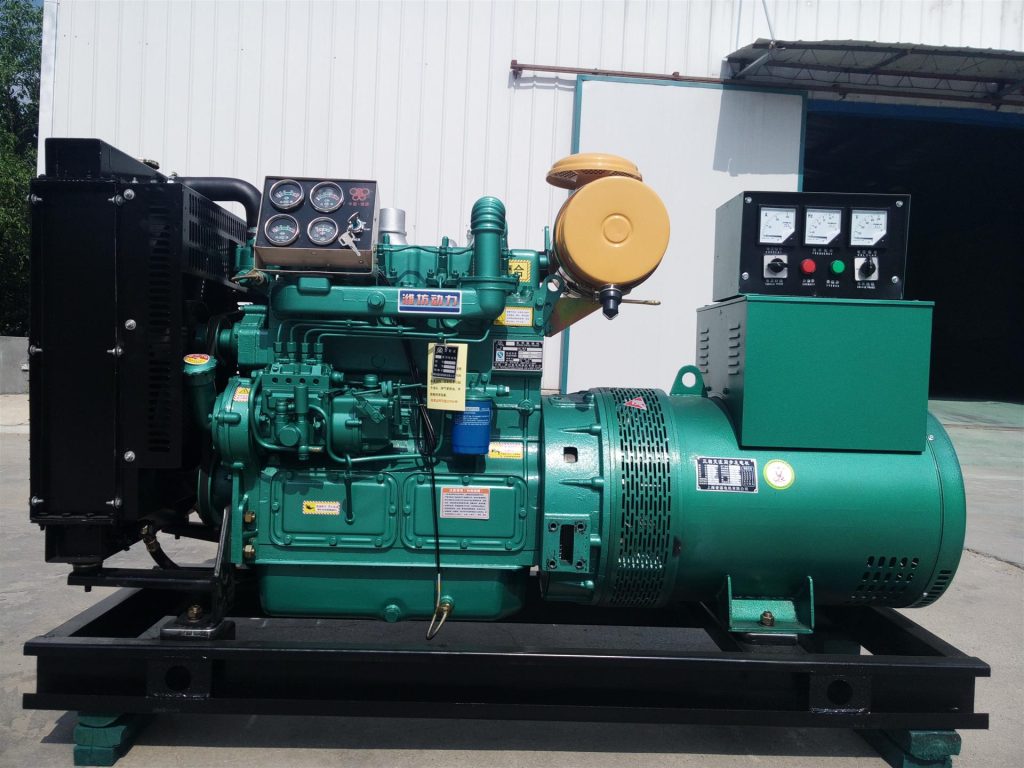Introduction
In today's industrial and commercial landscape, noise monitoring has become an essential aspect of maintaining environmental standards and ensuring the well-being of workers and the community. Noise pollution can have detrimental effects on human health, productivity, and overall quality of life. One of the key tools used in noise monitoring is the diesel generator, which plays a crucial role in providing power for monitoring equipment and ensuring continuous operation in various environments. This article explores the significance of diesel generators in noise monitoring applications, their benefits, challenges, and best practices for efficient and effective noise monitoring.
Understanding Diesel Generators
Diesel generators are widely used in various industries and settings for providing reliable and uninterrupted power supply. These generators work by converting diesel fuel into electrical energy through an internal combustion engine. They are known for their robustness, durability, and efficiency, making them ideal for applications where a stable power source is essential. Diesel generators come in different sizes and capacities, ranging from small portable units to large industrial systems capable of powering entire facilities.
Significance of Diesel Generators in Noise Monitoring
In the field of noise monitoring, diesel generators play a critical role in powering the monitoring equipment, including sound level meters, data loggers, and other devices used to measure and analyze noise levels. Continuous power supply is essential for ensuring that the monitoring equipment operates effectively and provides accurate data for assessing noise levels in different environments. Diesel generators offer a reliable and cost-effective solution for powering noise monitoring equipment in remote locations, construction sites, industrial facilities, and other challenging environments where access to the grid may be limited.
Benefits of Using Diesel Generators in Noise Monitoring
1. Reliability: Diesel generators are known for their reliability and durability, making them a trusted power source for critical applications such as noise monitoring. They can operate continuously for extended periods without the need for frequent maintenance or refueling, ensuring uninterrupted power supply for monitoring equipment.
2. Portability: Many diesel generators are designed to be portable and easy to transport, making them ideal for noise monitoring applications in remote or temporary locations. Portable diesel generators can be quickly set up and moved as needed, providing flexibility and convenience for monitoring activities in different environments.
3. Power Output: Diesel generators are capable of producing high power output, making them suitable for powering multiple noise monitoring devices simultaneously. This high power capacity ensures that all monitoring equipment operates effectively and efficiently, even in demanding conditions.
4. Cost-Effectiveness: Diesel fuel is generally more cost-effective than other fuel sources, making diesel generators a cost-efficient option for powering noise monitoring equipment. The lower fuel costs and high efficiency of diesel generators contribute to overall savings in operational expenses for noise monitoring projects.

Challenges of Using Diesel Generators in Noise Monitoring
While diesel generators offer numerous benefits for noise monitoring applications, there are also some challenges associated with their use. It is important to be aware of these challenges and take necessary measures to address them effectively:
1. Noise Emission: Diesel generators themselves can contribute to noise pollution, especially in quiet environments where noise levels need to be monitored accurately. To mitigate this issue, it is essential to place the generator at a sufficient distance from the monitoring equipment and employ soundproofing measures to reduce noise emissions.
2. Environmental Impact: Diesel generators produce emissions that can have environmental implications, including air pollution and carbon emissions. To minimize the environmental impact of diesel generators, it is crucial to use fuel-efficient models, adhere to emission standards, and consider alternative power sources where feasible.
3. Maintenance Requirements: Diesel generators require regular maintenance to ensure optimal performance and longevity. Neglecting maintenance tasks can lead to breakdowns, reduced efficiency, and increased operational costs. It is essential to follow the manufacturer's maintenance guidelines and schedule routine inspections to keep the generator in top condition.
Best Practices for Efficient Noise Monitoring with Diesel Generators
To maximize the efficiency and effectiveness of noise monitoring using diesel generators, the following best practices can be implemented:
1. Proper Placement: Position the diesel generator at a suitable distance from the noise monitoring equipment to minimize interference and ensure accurate measurements. Consider using sound barriers or enclosures to reduce noise emissions from the generator.
2. Regular Maintenance: Schedule routine maintenance tasks for the diesel generator, including oil changes, filter replacements, and inspections of critical components. Adhering to a maintenance schedule will help prevent breakdowns and ensure reliable operation.
3. Fuel Management: Monitor fuel consumption and refuel the generator as needed to avoid unexpected shutdowns. Keep funny post on hand for emergencies and consider using fuel additives to improve efficiency and reduce emissions.
4. Monitoring and Data Analysis: Monitor the performance of the diesel generator and the noise monitoring equipment regularly to identify any issues or anomalies. Analyze the data collected to assess noise levels, trends, and patterns for informed decision-making.
5. Compliance with Regulations: Ensure that the diesel generator and noise monitoring equipment comply with relevant regulations and standards for noise emissions, environmental impact, and workplace safety. Stay informed about any updates or changes in regulations that may affect noise monitoring activities.
Conclusion
Diesel generators play a vital role in noise monitoring applications, providing a reliable power source for monitoring equipment in various environments. Despite the challenges associated with their use, diesel generators offer numerous benefits, including reliability, portability, high power output, and cost-effectiveness. By following best practices such as proper placement, regular maintenance, fuel management, monitoring, and compliance with regulations, noise monitoring activities can be conducted efficiently and effectively with the support of diesel generators. As technology continues to advance, diesel generators are expected to evolve further to meet the growing demand for sustainable and efficient power solutions in noise monitoring and other critical applications.
